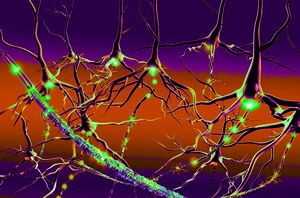A Swedish woman diagnosed with multiple sclerosis (MS) appears to have died after developing unwanted immunogenicity toward the biological drug Tysabri (natalizumab), according to a report in the journal Neurology [1].
MS patient dies from immunogenicity to biological drug
Biosimilars/Research
|
Posted 01/03/2013
 0
Post your comment
0
Post your comment

The 32-year-old woman developed anti-Tysabri antibodies after six infusions of the drug and, according to the researchers the woman was dead within seven months of starting Tysabri. Her physicians ruled out progressive multifocal leukoencephalopathy (PML) – a known and often-fatal side effect of Tysabri – and the research team concluded that the woman’s death was the result of a ‘rebound neuro-inflammation as a result of the development of natalizumab anti-drug antibodies’.
Natalizumab is a humanized monoclonal antibody, which works against the cell adhesion molecule α4-integrin and is used in the treatment of MS and Crohn’s disease.
Natalizumab was given at the standard dose of 300 mg every 4 weeks by infusion. However, the patient had shown unusual reactions (chills and fever) to the drug starting with the fourth infusion. After the sixth infusion, she then developed progressive gait abnormalities, ataxia and significant mental deterioration. At this stage anti-natalizumab antibodies were found at a level of 335 mg/L, which are ‘among the highest recorded among anti-drug antibody positive patients identified in Sweden’, according to the authors.
The high levels of antibodies to natalizumab therefore led the authors to consider the possibility that the anti-natalizumab antibodies had triggered an anti-idiotype reaction, which could have led to an autoimmune attack on ligands of VLA-4, VCAM‑1, and fibronectin. In vitro studies using serum samples from the patient, however, showed no signs of anti-idiotype reactivity.
Most biologicals induce immune responses, because they are polypeptides or proteins and might therefore be recognised by the immune system as foreign. However, in most cases, the presence of antibodies has little clinical consequence. The problem is that cases of immunogenicity, such as this one and that of pure red cell aplasia [2], raise concerns about the potential clinical consequences of extensive use of biologicals.
Other clinicians have reported cases in which their patients worsened while on natalizumab or showed severe relapses after stopping the drug, but this case was unusual in its fatal outcome.
The authors therefore recommended that ‘repeated moderate to severe infusion reactions in the beginning of natalizumab treatment should prompt the cessation of treatment and assessment for the development of natalizumab anti-drug antibodies’.
Editor’s comment
If you are interested in contributing a research article in the safety and immunogenicity issue of biologicals to GaBI Journal, please send us your submission here.
Related articles
Testing for unwanted immunogenicity from biologicals
References
1. Svenningsson A, et al. Fatal neuroinflammation in a case of multiple sclerosis with anti-natalizumab antibodies. Neurology. 2013 Feb 6. [Epub ahead of print].
2. GaBI Online - Generics and Biosimilars Initiative. Epoetin alfa and pure red cell aplasia [www.gabionline.net]. Mol, Belgium: Pro Pharma Communications International; [cited 2013 Mar 1]. Available from: www.gabionline.net/Biosimilars/Research/Epoetin-alfa-and-pure-red-cell-aplasia
Permission granted to reproduce for personal and educational use only. All other reproduction, copy or reprinting of all or part of any ‘Content’ found on this website is strictly prohibited without the prior consent of the publisher. Contact the publisher to obtain permission before redistributing.
Source: Medpage Today, Neurology
News
FDA approves third interchangeable ranibizumab biosimilar Nufymco
FDA approves Poherdy (first interchangeable pertuzumab) and Armlupeg (pegfilgrastim) biosimilars
General
Samsung Bioepis wins Pyzchiva case; Regeneron patent rulings threaten foreign biosimilars
Chinese biosimilars go global: growth, partnerships, and challenges
What is the future for the US biosimilar interchangeability designation

Biosimilars/Research Posted 05/06/2025
Biosimilar clinical efficacy studies: are they still necessary?

Biosimilars/Research Posted 27/05/2025
The best selling biotechnology drugs of 2008: the next biosimilars targets








Post your comment